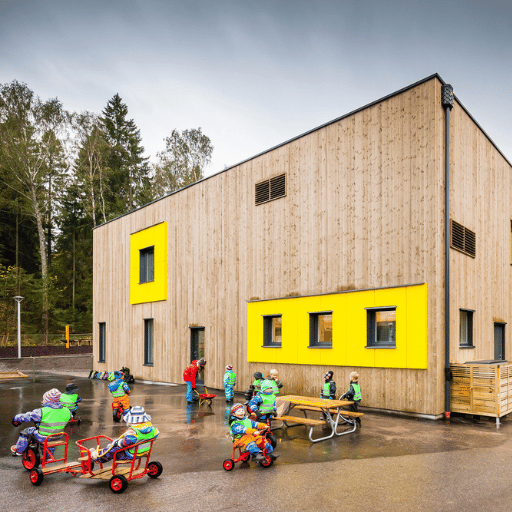Förskollärare (Preschool Teacher) Role Interview (Förskola (Preschool))
In this article, we’ve put together all the information you need to run an interview for a Förskollärare (Preschool Teacher) in a Förskola (Preschool) in Sweden. We’ve included a Förskollärare (Preschool Teacher) job description, job requirements (useful for adding to job advertisements), common job interview questions to ask someone applying for your advertised Förskollärare (Preschool Teacher) role, follow-up questions to ask your potential new hire and excellent answers that candidates give to Förskollärare (Preschool Teacher) job interview questions. We’ll also look at what happens in an interview for a Förskollärare (Preschool Teacher) and the hiring process after the interview.
Förskollärare (Preschool Teacher) Role Job Description, Requirements, Questions
Role Job Description:
As a Förskollärare (Preschool Teacher) in Sweden, your primary responsibility is to create a nurturing and stimulating environment for young children to learn and grow. You will be responsible for planning and conducting pedagogical activities that align with the curriculum and promote children’s development and learning. This includes designing lesson plans, organizing educational materials, and implementing various teaching strategies to engage children in meaningful learning experiences. Additionally, you will collaborate with other teachers and parents to ensure the holistic development of each child.
Role Job Requirements:
To excel in this role, you must possess a strong passion for working with young children and a deep understanding of child development theories and practices. A bachelor’s degree in early childhood education or a related field is typically required, along with a valid teaching license. You should have excellent communication and interpersonal skills to effectively interact with children, parents, and colleagues. Additionally, you must be patient, creative, and adaptable to meet the diverse needs of each child in your care.
Role Job Interview Questions:
1. How do you create a nurturing and stimulating environment for young children?
– Follow-up: Can you provide an example of a specific activity or strategy you have used in the past?
2. How do you ensure the implementation of the curriculum in your classroom?
– Follow-up: How do you modify the curriculum to meet the individual needs of each child?
3. How do you assess children’s development and learning progress?
– Follow-up: How do you use assessment data to inform your teaching practices?
4. How do you collaborate with parents and other teachers to support children’s holistic development?
– Follow-up: Can you share an example of a successful collaboration experience?
5. How do you handle challenging behaviors in the classroom?
– Follow-up: Can you describe a specific situation and how you effectively managed it?
Examples of excellent answers from candidates:
1. “To create a nurturing and stimulating environment, I focus on building positive relationships with each child. I greet them warmly, listen to their stories, and provide individual attention. Additionally, I incorporate hands-on activities, music, and storytelling to engage their senses and spark their curiosity.”
2. “I ensure the implementation of the curriculum by carefully planning each lesson, setting clear learning objectives, and using a variety of teaching methods. I also regularly assess children’s progress through observations, portfolios, and informal assessments to ensure they are meeting the curriculum goals.”
3. “Assessing children’s development and learning progress is crucial. I use a combination of formal and informal assessments, such as checklists, anecdotal records, and work samples. I analyze the data to identify areas of strength and areas that need further support, and then adjust my teaching strategies accordingly.”
4. “Collaboration with parents and other teachers is essential for a child’s holistic development. I maintain open lines of communication with parents through regular meetings, newsletters, and online platforms. I also actively participate in team meetings and professional development opportunities to exchange ideas and ensure a cohesive approach to teaching and learning.”
5. “When faced with challenging behaviors, I believe in using positive reinforcement and redirection techniques. I try to understand the underlying cause of the behavior and address it with empathy and patience. I also involve the child in problem-solving and teach them appropriate ways to express their emotions.”
Förskollärare (Preschool Teacher) (Sweden) Interview Schedule
To conduct a comprehensive one-hour interview for a Förskollärare (Preschool Teacher) role in a Förskola (Preschool) in Sweden, consider the following schedule:
- Introduction and overview of the role (5 minutes)
- Candidate’s experience and skills assessment (15 minutes)
- Job-specific questions (25 minutes)
- Follow-up questions and clarification (10 minutes)
- Candidate’s questions about the role and organization (5 minutes)
Best Practices for Förskollärare (Preschool Teacher) Candidate Communication
After the interview for your Förskollärare (Preschool Teacher) role (Sweden), it is crucial to keep the candidate informed about the hiring process. Best practices include:
- Sending a personalized thank-you email to the candidate within 24 hours
- Provide a timeline for the Förskollärare (Preschool Teacher) hiring process and when they can expect to hear back
- Regularly updating the candidate on their Förskollärare (Preschool Teacher) job application status, even if there are delays
- Offering constructive feedback to unsuccessful candidates to help them improve for future opportunities at your Förskola (Preschool)
- Maintaining open and transparent communication throughout the entire process to ensure a positive candidate experience
Ready to start your hiring process?
Click the button above to get our simple-to-use Applicant Tracking System (ATS) that can be used to manage your hiring process.

